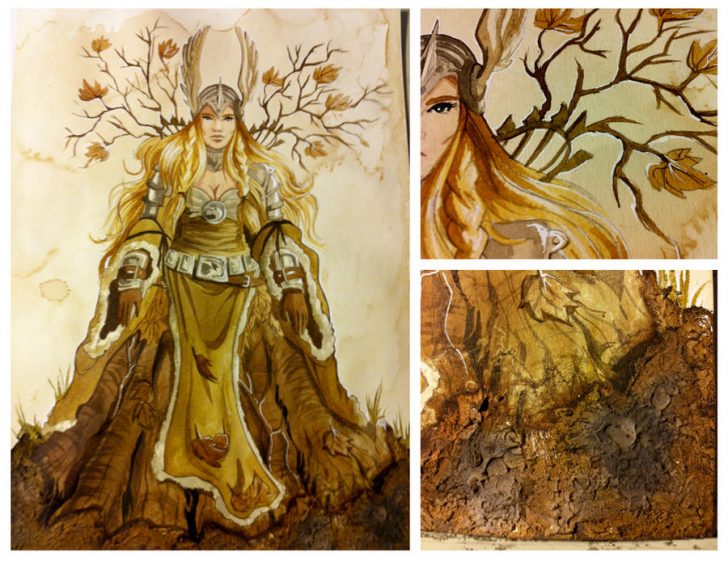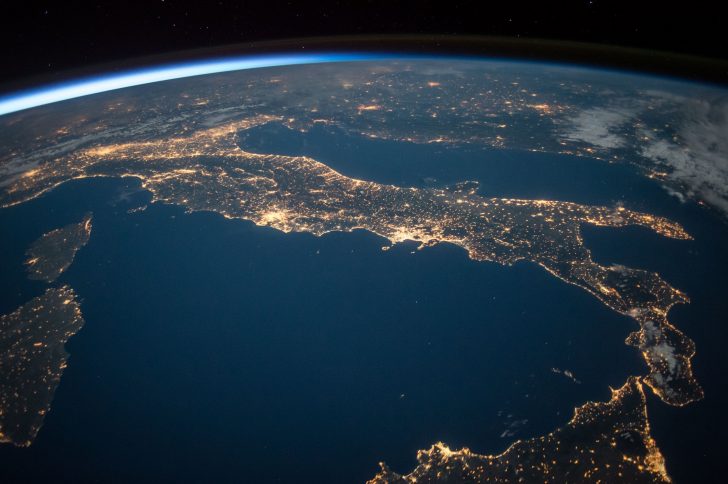Alright, space enthusiasts and curious minds, gather 'round because we're about to embark on a cosmic journey that takes us back to the dawn of time itself – the birth of Earth's name. You might think we've always called this blue orb Earth, but the story behind its moniker is as fascinating as stargazing on a clear night. So, brace yourselves for an adventure through time and space that'll leave you with a newfound appreciation for the name we've come to know and love.
Ancient Tongues and Cosmic Tapestry
Picture this: the universe, a canvas of twinkling stars, planets, and galaxies. Now, zoom in on our little corner of space. Back when humans were just starting to scribble on walls and exchange grunts, we needed a way to distinguish our home from the rest of the celestial playground. Enter ancient languages and their knack for encapsulating profound concepts in just a few syllables.

The universe is a canvas of billions of twinkling stars, planets, and galaxies (image source: Pexels)
The Anglo-Saxon Connection
Alright, let's wind the clock back a bit. Millennia ago, our language was a tad different from the verbose English we use today. Enter Old English, the granddaddy of our modern tongue. In Old English, our planet was known as "eor(th)e," which, believe it or not, translates to none other than Earth. And just what did "eor(th)e" mean, you ask? Well, it was more than just a word; it was a deep-rooted connection to the land beneath our feet, the soil that sustained us, and the very essence of our existence.
A Pantheon of Inspiration
Hold onto your hats because we're about to dive into the mythology realm. Strap in, folks, because this is where things get a bit cosmic and imaginative. Our name, Earth, shares its roots with "eor(th)e," but also with "Erda," a Germanic goddess who was the epitome of Mother Earth herself. Imagine a deity responsible for fertility, growth, and the very life force coursing through the veins of our planet. Pretty cool, right? This cosmic tie to mythology has added an air of mystery and majesty to our beloved Earth's name.

An illustration of Erda, the Germanic goddess (image source: DevianArt)
Bridging the Linguistic Gaps
Alright, now fast forward a few centuries. We've moved on from Old English and have a few other languages in the mix. But guess what? The name stuck! Languages evolve, cultures mingle, and our planet's name became a constant across tongues and borders. In Spanish, it's "Tierra." In French, it's "Terre." The Greeks have "Gaia," paying homage to the primordial goddess of Earth. It's as if Earth's name was etched into the very fabric of human communication.
A Name for the Ages
Now, let's talk a bit about astronomy's role in all of this. As our understanding of the cosmos expanded, we realized that our Earth was part of a vast system of planets orbiting the sun. But guess what? The name "Earth" held its ground. In a universe that spans billions of light-years, our planet's name has remained a constant – a testament to our connection with this pale blue dot we call home.

Scientists have yet to find a planet that can harbor life other than Earth (image source: Pexels)
A Reverence for Earth
The name "Earth" isn't just a sequence of letters; it's a reflection of our deep-rooted connection to this planet, our shared history, and our responsibility as stewards of its well-being. It's a reminder that beneath our feet lies not just dirt but a canvas upon which life's most intricate tales are woven.
So, my cosmic companions, the next time you gaze up at the night sky, remember that the name "Earth" is more than just a label. It's a linguistic thread that ties us to the past, present, and future. It's a word that unites humanity under a single banner, reminding us that no matter where we hail from, we're all inhabitants of this vibrant, bustling planet. And as we marvel at the stars and galaxies, let's not forget the beauty and wonder that's right under our feet – the magnificent Earth that has nurtured us, inspired us, and earned its name through the eons of time.



